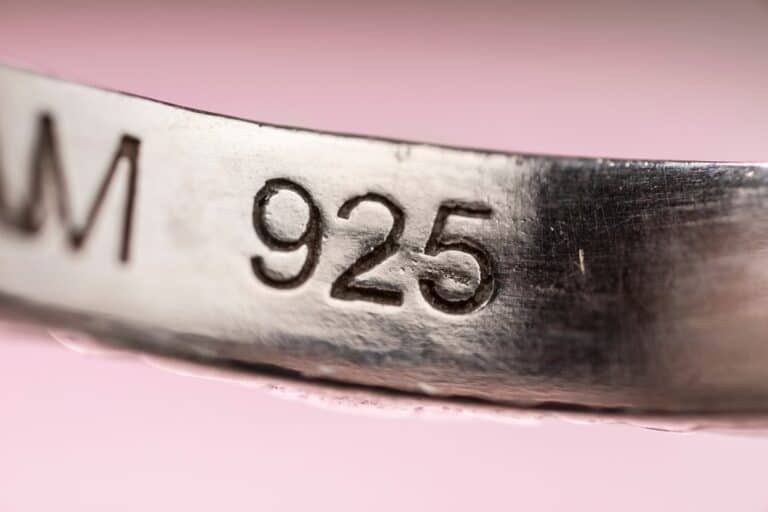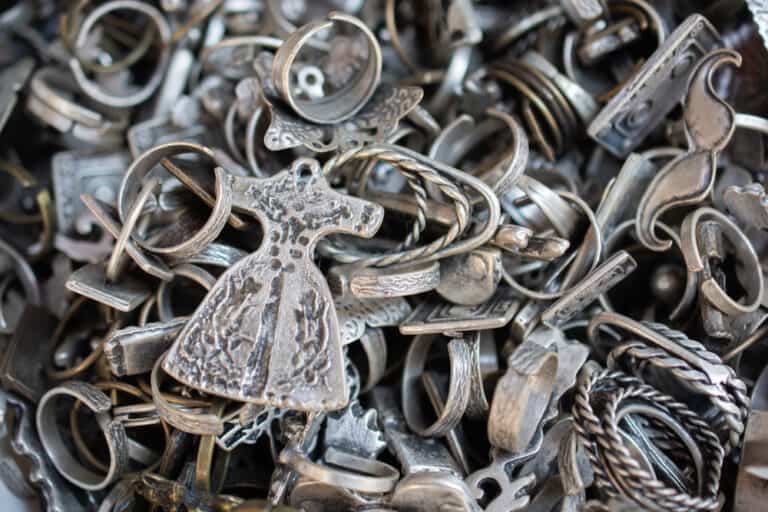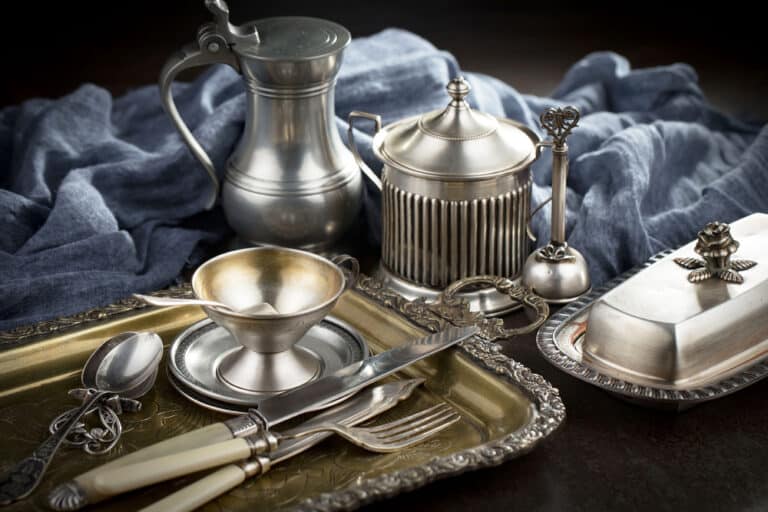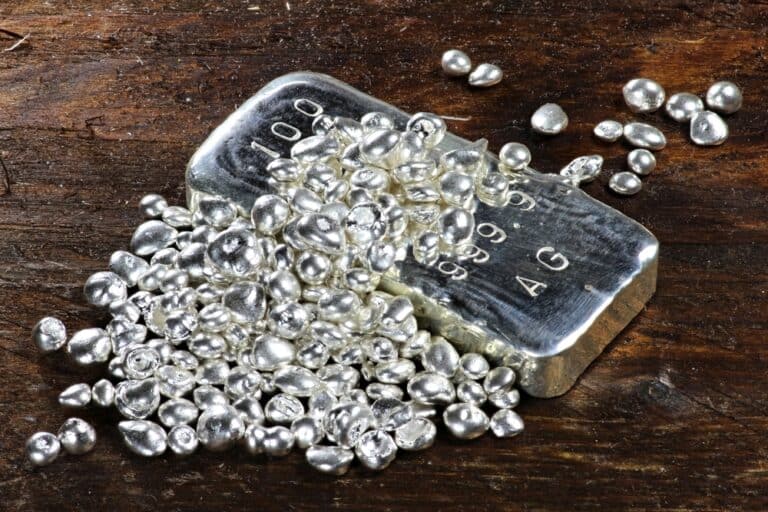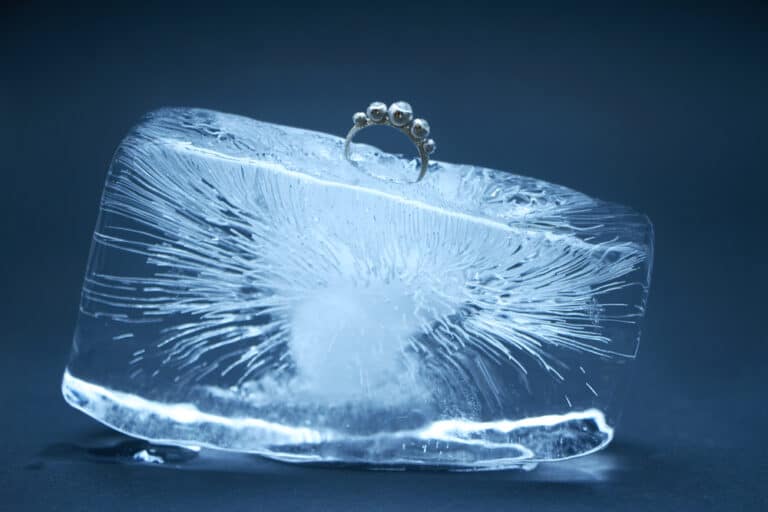When we hear the word silver, we instantly associate it with high-class jewelry and other forms of wealth. However, there is more than meets the eye regarding this precious metal. Silver is used in our everyday lives, and most people are unaware of it. So, today we will ask if silver is a good conductor.
Silver, like all metals, can conduct electricity, but as it stands, it is the most conductive metal on earth. We may think that any metal will do when it comes to being a conductor, but the reality is that each metal has its own properties and reacts in its own way.
We will take a closer look at the conductivity of silver, and various other popular metals used when conducting electricity. Many differences exist between these metals, each suited to its own application. First, let’s take a closer look at silver, its conductive properties, and which application it will work best in.
Is Silver A Good Heat Conductor?
While we know that pure silver is one of the best electrical conductors, it is also one of the best conductors of heat. The same basic physics rules we apply to electrical conductivity will apply to thermal conduction. When conducting, the more free electrons a conductor has, the better.
The abundance of free electrons that make up silver’s conductivity allows electricity and heat to pass through the precious metal easily and at a much faster rate. This makes silver one of the best conductors known on earth.
Although silver is one of the most conductive metals known to man, it isn’t necessarily the most practical to use. We will go through some of the applications and disadvantages of using silver as a conductor later in this article
Is Silver Widely Used As A Conductor?
We have already discussed how silver is one of the most conductive metals on earth, but is it widely used as a conductor in everyday life? Well, the answer is tricky. Silver is a niche product, meaning that it isn’t widely used, but it still has its applications where it can be found.
With silver being such a niche product, it results in cost implications. The rarer an element is, the more that element will cost. For example, it would be entirely impractical to wire your house with silver cables, as the cost of silver is up to 80 times more per pound than copper.
With the price ultimately being the determining factor, silver is simply not feasible to use on big projects, especially when you compare it to the cost of copper, which is readily available and works just as well as a conductor.
The Price Difference Between Copper And Silver
The role that the price pays when it comes to which precious metal will be used as a conductor is quite significant. Therefore it is crucial to explain the price difference between the two quickly. Let’s take a look:
- Silver price per pound: Between $250 and $290
- Copper price per pound: Between $3 and $4. The most copper cost per pound was in 2022, when it reached $5 but quickly came down.
You see, silver costs almost 100 times more than copper, and when you have to use miles of wiring for specific applications, the cost can start to rise significantly. So, for example, a project can go from costing a few million to over 100 million.
What Is Silver Used For?
Over the years, silver has made more of an appearance in the industrial world. For example, silver alloys have been used to replace the lead used in solder, taking away the toxicity that the lead presents. It is also used in smaller applications such as circuit boards and microchips.
There are, however, other areas in which silver is used. With the price of silver being so high, it is often used in specialized and more high-end applications, such as:
- Solar panels
- Industrial switches
- Automobile contacts
- Printed circuit boards
- Cameras
These are just a few examples of the applications of silver, but it is also the first choice for electronics that are used in very sensitive systems. The conductive sensitivity of silver allows it to be used in electronics without affecting any other electrical fields and frequencies that may cause interference.
Disadvantages Of Using Silver As A Conductor
So, since we have looked at some of the applications in which silver is used, let’s now look at some of its drawbacks. Just because silver makes a great conductor doesn’t mean it may be built for every use.
From what we discussed earlier, we already know that the price of silver is one of its biggest downfalls, but there are a few more issues we face when using silver. Silver tarnishes when exposed to air and other elements, causing a build-up on the silver conductor.
This doesn’t sound too bad, right? Well, the thing is, when it comes to tarnishing, it can cause an uneven distribution of electrical current, primarily when used in operations that use high frequencies. This can negatively affect the performance of its application.
Substitutes For Silver Conductors
When it comes to conductors, there is a vast host that we can choose from. Silver may be one of the best, but it may not be suitable for every application.
Some of the commonly used conductors are:
- Silver
- Copper
- Aluminum
- Gold
Of these choices, copper is the most used, not only because of its price and easy availability but because it is malleable and easy to work with. This also makes it the best choice for large amounts of wiring.
Aluminum is also used as a conductor. One pound of Aluminum has twice the electrical current carrying capacity of two pounds of copper. This makes Aluminum incredibly cost-effective, and it is slowly beginning to replace copper in specific electrical applications.
Finally, we come to use gold as a conductor. Gold is highly conductive, almost as much as silver, but with cost being the determining factor, it is only used in moderation. It is often used in applications where conductors need to have a high resistance to oxidization and corrosion.
You can find gold in these electronics:
- Laptops
- Desktops
- Mobile phones
The amount of gold used in these devices is minimal. However, some people, especially in developing countries, will collect old and damaged mobile phones and strip them for the little bits of gold content they contain.
Also, when it comes to mobile phones, the more high-end the phone, the more gold will be used.

Conducting Energy: Pure Silver Vs. Sterling Silver
Sterling silver is simply pure silver mixed with copper. Of course, this makes the silver impure, but it is still a metal with the two best conductors. So, surely sterling silver should be as good as pure silver regarding conducting energy, right?
Well, it is not as simple as that, and the topic can get quite technical, but no, pure silver still comes out as the winner.
In electronics that use silver, you will mostly find silver at least 99% pure. The higher the purity, the more likely it will be used in a high-end device.
That said, it is essential to remember that the purer the silver, the easier it tarnishes because it is soft. It becomes harder when pure silver is mixed with other metals, such as copper, but the conductivity is not as good.
Most silver jewelry uses sterling silver because pure silver is a bit too soft, making it tarnish faster than silver mixed with copper or alloy.
Conducting Electricity: Silver Vs. Gold
Silver and gold are both excellent conductors of electricity. However, they both have their advantages and their disadvantages. Let’s take a look at one of the most significant differences between these two types of metals when it comes to conducting electricity:
- Silver conducts electricity better and more efficiently than gold.
- Gold, however, is more stable than silver, making it more suitable for high-end electronics.
So in electronics, especially high-end ones where stability is more important than efficiency, gold is used instead of silver.
Does Silver Reflect Light?
Silver has one of the best reflective properties of all metals. The higher the purity, the more reflective the metal becomes.
While reflecting light does not necessarily contribute to how well silver conducts electricity, it plays a role in things such as solar panels.
So, while solar energy cannot be “Conducted” per se, silver is the best material to capture sunlight.
Conclusion
Now that we have taken a closer look at silver as a conductor, we can see more than meets the eye. If we take away all external factors, silver would undoubtedly be the first choice of conductors. The ease with which it conducts stands out above all other metals. However, the practicalities of using large amounts of silver to conduct are just not feasible.

